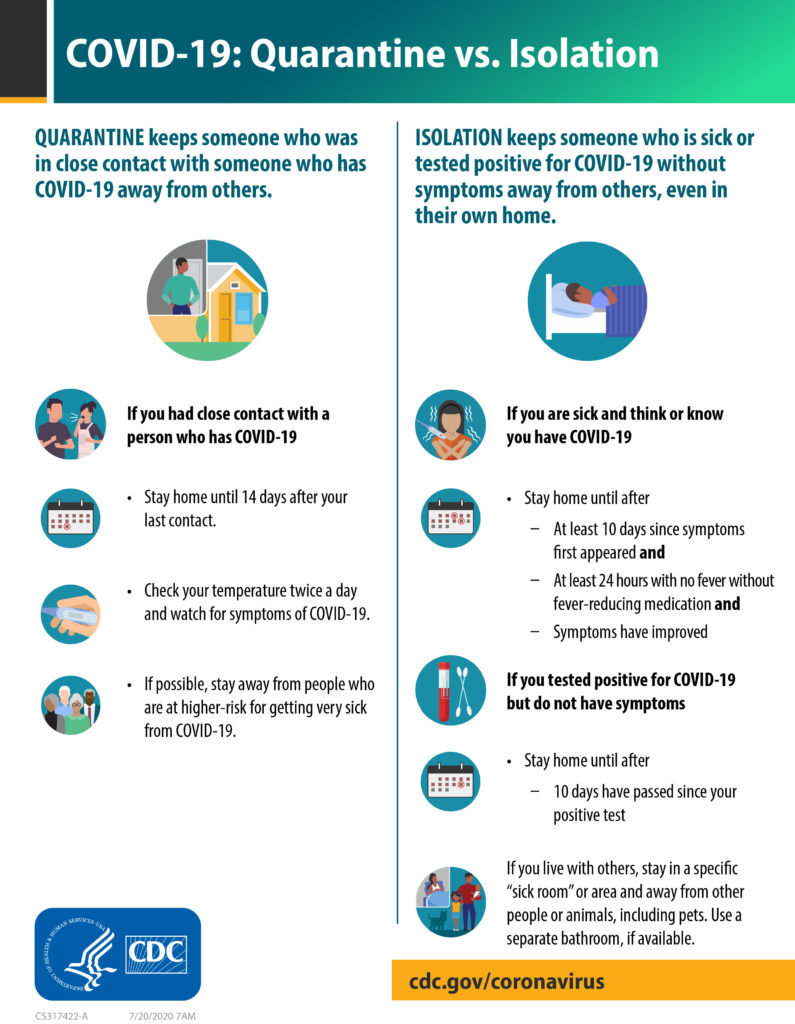Quarantine vs. Isolation
July 31, 2020
Follow Boyd Nursing and Rehabilitation on Facebook! Click Here
To see a list of frequently asked questions please Click Here


Currently, there is no evidence to suggest that handling food or consuming food is associated with COVID-19.
Coronaviruses, like the one that causes COVID-19, are thought to spread mostly person-to-person through respiratory droplets when someone coughs, sneezes, or talks. It is possible that a person can get COVID-19 by touching a surface or object, including food or food packaging, that has the virus on it and then touching their own mouth, nose, or possibly their eyes. However, this is not thought to be the main way the virus spreads.
After shopping, handling food packages, or before preparing or eating food, it is important to always wash your hands with soap and water for at least 20 seconds. If soap and water are not available, use a hand sanitizer that contains at least 60% alcohol. Cover all surfaces of your hands and rub them together until they feel dry. Remember, it is always important to follow good food safety practices to reduce the risk of illness from common foodborne pathogens.
Content Source: The Center for Disease Control and Prevention
Viral tests check samples from your respiratory system, such as a swab from the inside of your nose, to tell you if you currently have an infection with SARS-CoV-2, the virus that causes COVID-19. Some tests are point-of-care tests, meaning results may be available at the testing site in less than an hour. Other tests must be sent to a laboratory to analyze, a process that takes 1–2 days once received by the lab.
How to get a Viral Test
Here is some information that may help you make decisions about getting a viral test:
• Most people have mild illness and can recover at home without medical care. Contact your healthcare provider if your symptoms are getting worse or if you have questions about your health.
• Decisions about testing are made by state and local health departments or healthcare providers.
• If you have symptoms of COVID-19 and are not tested, it is important to stay home.
What to do After a Viral Test
• If you test positive for COVID-19, know what protective steps to take if you are sick or caring for someone.
• If you test negative for COVID-19, you probably were not infected at the time your sample was collected. However, that does not mean you will not get sick. The test result only means that you did not have COVID-19 at the time of testing. You may test negative if the sample was collected early in your infection and test positive later during your illness. You could also be exposed to COVID-19 after the test and get infected then. This means you could still spread the virus. If you develop symptoms later, you may need another test to determine if you are infected with the virus that causes COVID-19.
COVID-19 testing differs by location. If you have symptoms of COVID-19 and want to get tested, call your healthcare provider first. You can also visit your state or local health department’s website to look for the latest local information on testing.